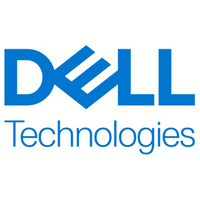
Dell Technologies
View Brand PublisherWhy picking the right digital business model is a key step in your digital transformation journey
The COVID-19 pandemic is redefining priorities for corporates in India. A KPMG survey, conducted for its 2020 India CEO Outlook report, showed that CEOs in India are prioritising investments in new technologies to pave the way for a more sustainable and resilient future. This stems from the belief that transitioning to digital business models sooner than later will help establish business continuity and keep organisations connected with employees and customers.
Digital technologies enable value creation in multiple ways, from changing internal processes and making them more streamlined and efficient, to transforming how an organisation interacts with customers. They also give businesses access to better data, and better ways to process this data.
These technologies open up doors for more innovation, realisation of new revenue streams and monetisation opportunities, and allow businesses to explore new distribution models.
Despite their ubiquitous nature, digital technologies are complex, and organisations need to clearly understand the digital ecosystem in order to pick a digital business model that’s best suited for their requirements. And one key driver for this decision is to make the choice people-centric -- putting people at the centre of your technology strategy, and understanding how this choice would impact various stakeholders.
Since small and medium enterprises (SMEs) do not have the luxury of time, resources or funds for large-scale experimentation before arriving at the right choice, it is imperative that they have in-depth understanding about the different kinds of digital business models.
The Subscription Model
In the subscription model, a customer gets continued access to a specific product/service for an agreed-upon time frame. Typically, Software as a Service (SaaS) companies operate on subscription models. The advantage is that it lowers initial barriers to entry since customers don’t need to make long-term commitments
The Free Model
The likes of Facebook, Instagram, Google and Twitter are prime examples of the free model. Here, the data that you gather becomes the most valuable part of the business and an important monetisation tool. Better data means better selling and marketing techniques, which in turn leads to better decision making.
The Freemium Model
The freemium model is a cross between the above two, and is one of the most popular business models today. Under this, users get to try out a basic free version of a product/service with limited benefits and they can upgrade to a paid version that would offer them more products/services. Key examples include LinkedIn, Dropbox, WordPress etc.
The Sharing Model
This model operates on the “sharing” philosophy. Here, the consumer does not own the product/service directly, but pays a sum to use it or access it for a certain amount of time. In the last few years, this model has disrupted the digital business model scene, with AirBnB as one of its biggest success stories. The popularity of this model can be attributed to the preference among a segment of younger consumers open to products and experiences that are unique, innovative and disruptive. They want to experience the benefits, without having to handle the implications of ownership.
The On-Demand Model
The popularity of this model has risen exponentially in the last few years with the emergence of the gig economy. This model is a key key indicator of the difference that digital transformation can make. The on-demand business model fulfils customer demand by providing them goods and services immediately. Prime examples of this model include ride-sharing and food delivery apps such as Uber, Lyft, Zomato and Dunzo, among others.
Make the right decision for your business at the right time
For SMEs who are just starting out or looking to get to the next stage in their journey, an in-depth understanding about the dos and don’ts across various facets of the business is essential.. But often, theoretical knowledge is not sufficient given that being an entrepreneur is about thinking fast on your feet.
Learn more about making the right calls in business with Digital Scale-Up: The Medium Business Course by Dell Technologies. The immersive learning programme is designed to help key decision-makers in medium businesses through tried-and-tested, real-world knowledge and learnings from top ecosystem experts in the country.








